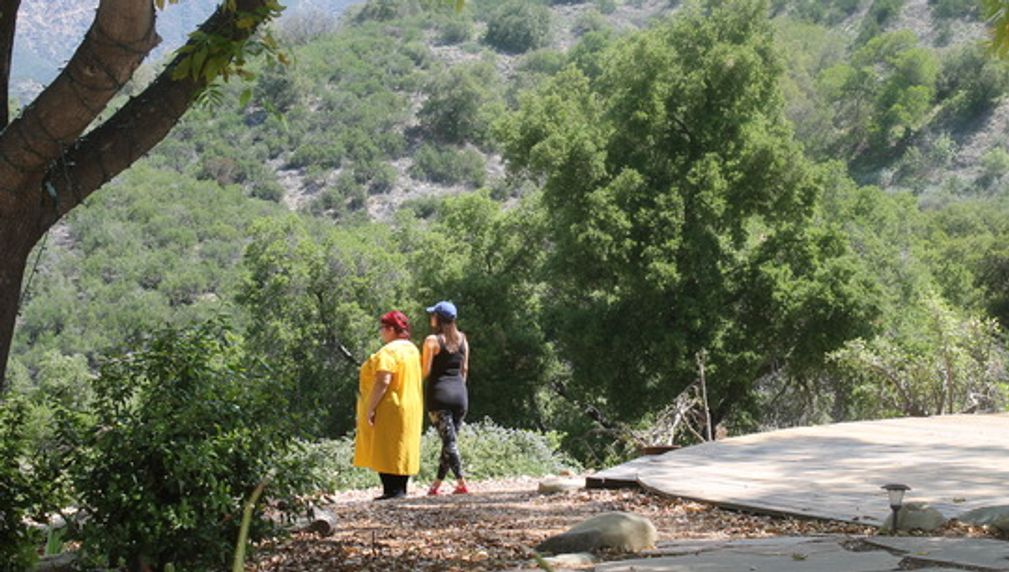Joyful Heart Foundation’s Survivor Retreat Model
Joyful Heart's Survivor Retreat Model offers LA's survivors of sexual assault, domestic violence, and child abuse, and the professionals who serve them, a new holistic pathway to healing from trauma.

Are any other organizations collaborating on this proposal?
Peace Over Violence, Village Family Services, Homeboy Industries, Georgetown University
Please describe your project proposal.
The demand for our signature Survivor Retreat Program for survivors of domestic and sexual violence exceeds its availability and reach. In response, we have undertaken an ambitious research project in partnership with Georgetown University to evaluate our retreats. Our research findings will used to create a replicable Retreat Model that organizations can implement and offer to survivors, the healing professionals who serve them, and communities beyond our current capacity and scope.
Which of the LIVE metrics will your proposal impact?
Self-sufficiency
Resilient communities
Prevalence of adverse childhood experiences
Mental illness
In what areas of Los Angeles will you be directly working?
Central LA
East LA
San Gabriel Valley
San Fernando Valley
South LA
Westside
South Bay
County of Los Angeles
Describe in greater detail how your proposal will make LA the best place to LIVE?
The domestic violence and sexual assault service provider community currently faces an unprecedented challenge in effectively helping survivors understand and heal from the trauma that they have endured. The challenge is twofold: there is a void in access to and training for services that holistically address a survivor's mind, body and spirit in order to activate long-term change. And, for the past forty years, the field has been so entrenched in meeting the immediate needs of survivors with limited resources and support that staff are themselves, suffering from high levels of vicarious trauma. A 2009 study in Violence Against Women found that 70% of participating domestic violence advocates met the criteria for clinical levels of post-traumatic stress disorder. As a result, despite extensive personal sacrifice from front line workers in the field, the services that survivors receive oftentimes fail to meet the overwhelming need in both volume and quality. This challenge has been amplified in Los Angeles, where in 2015, the LAPD announced that reports of sexual assault had increased by 21% and domestic violence incidents had increased by 33%.
Joyful Heart Foundation's four-day retreat is designed to restore participants' central nervous systems by addressing the physical, emotional and psychological impact of trauma, reducing the short and long term effects of this trauma, and ultimately laying the groundwork for participants to create healthy, permanent change in their own lives. Retreats are separately offered to survivors and healing professionals. The retreat offers 16 key workshops that integrate traditional and alternative healing methods and provide participants with tools they can implement themselves, post retreat. Participants are provided with nourishing meals, bodywork, time for reflection, and space and direction to create their own action plans for change and healing.
With support from LA2050, JHF will implement two survivor retreats. To date, Georgetown University has evaluated three survivor retreats and a retreat for healing professionals. The aim of this project is to demonstrate the effectiveness of the retreat as a new approach to healing and as an evidence-informed model that organizations can bring to their staff and client populations. This project will make LA a better place to LIVE by promoting positive mental health outcomes, community resiliency and increased support for advocates in this work.
Please explain how you will define and measure success for your project.
The evaluation of the Retreat Model’s effectiveness will be led by Mary Ann Dutton, Ph.D., a Professor of Psychiatry at Georgetown University. Dr. Dutton is a well-respected clinical psychologist and researcher with over 20 years of extensive experience in the areas of intimate partner violence and alternative healing practices. The evaluation will include standardized quantitative assessment measures (Patient Health Questionnaire--Somatic; Insomnia Severity Index; PTSD Checklist; Perceived Stress Scales; Multidimensonal Fatigue Symptom Inventory Short Form; and Satisfaction of Life Scale)that track levels of PTSD symptoms, stress related outcomes, and the acquisition of healing and wellness competencies: self-efficacy, positive self-concept, increased self-compassion, healthy coping skills, decreased isolation, and increased connectedness among program participants. Qualitative assessments will target patterns of isolation and physical health factors that directly relate to ability to access support within their families, friends and community. Assessments will be captured in data collection periods: two weeks prior to retreat, two weeks following retreat and at three and six months post retreat.
How can the LA2050 community and other stakeholders help your proposal succeed?
Money
Advisors/board members
Publicity/awareness
Infrastructure (building/space/vehicles
Technical infrastructure (computers
Network/relationship support